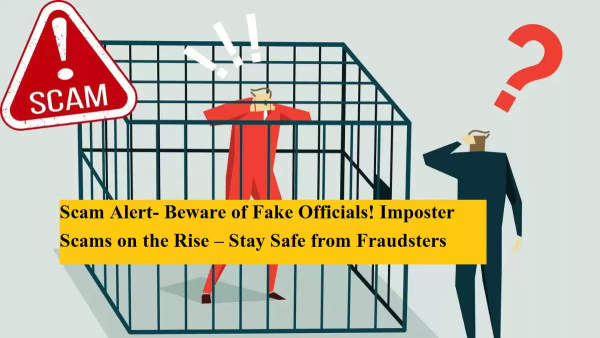
Scammers are constantly coming up with new ways to deceive people, often impersonating government officials, bank employees, relatives, or tech support representatives to steal hard-earned money. Knowing how to identify and avoid these scams is crucial to protecting yourself from financial fraud.
Imposter scams involve fraudsters pretending to be trustworthy individuals or organizations to trick victims into sharing sensitive information or transferring money. Here’s how these scams typically unfold:
Initial Contact – Scammers reach out via phone calls, emails, text messages, or social media. They may even spoof legitimate numbers or email addresses to appear authentic.
Building Trust – They introduce themselves as government officials, bank representatives, or even family members, claiming urgent issues that require immediate attention.
Creating Panic – To manipulate the victim, they create a sense of urgency, stating that bank accounts might be frozen, legal action could be taken, or a loved one is in danger.
Requesting Money or Personal Details – The final step involves demanding money through gift cards, cryptocurrency, or bank transfers, making it difficult to trace the fraud.
Fake Government Officials – Scammers pose as IRS, Social Security, or law enforcement officers, threatening fines or legal consequences unless payment is made.
Tech Support Fraud – Calls claiming to be from Microsoft or Apple warn about viruses on your computer, tricking victims into granting remote access.
Romance Scams – Fraudsters create fake online identities on dating sites to gain victims’ trust and later ask for money under false pretenses.
Fake Family Member Emergency – A caller impersonates a relative in distress, urging immediate financial assistance.
Business Email Scams – Fraudsters send emails pretending to be company executives or suppliers, requesting unauthorized payments.
Charity Fraud – Scammers take advantage of disasters or social causes, tricking people into donating to fake charities.
Bank Impersonation – Fraudulent calls or messages claim to be from a bank, asking for login credentials or transaction approvals.
Be cautious of unexpected calls or messages demanding urgent action.
Always verify identities before sharing any personal or financial details.
Never send money in a hurry—take time to double-check the request.
Avoid making payments via gift cards or cryptocurrency, as these are commonly used by scammers.
Independently verify the caller’s identity through official channels.
Report any suspected fraud to the police or relevant authorities immediately.
Scammers are constantly evolving their tactics, causing significant financial and emotional harm. Stay alert, spread awareness, and safeguard yourself and your loved ones from these threats.